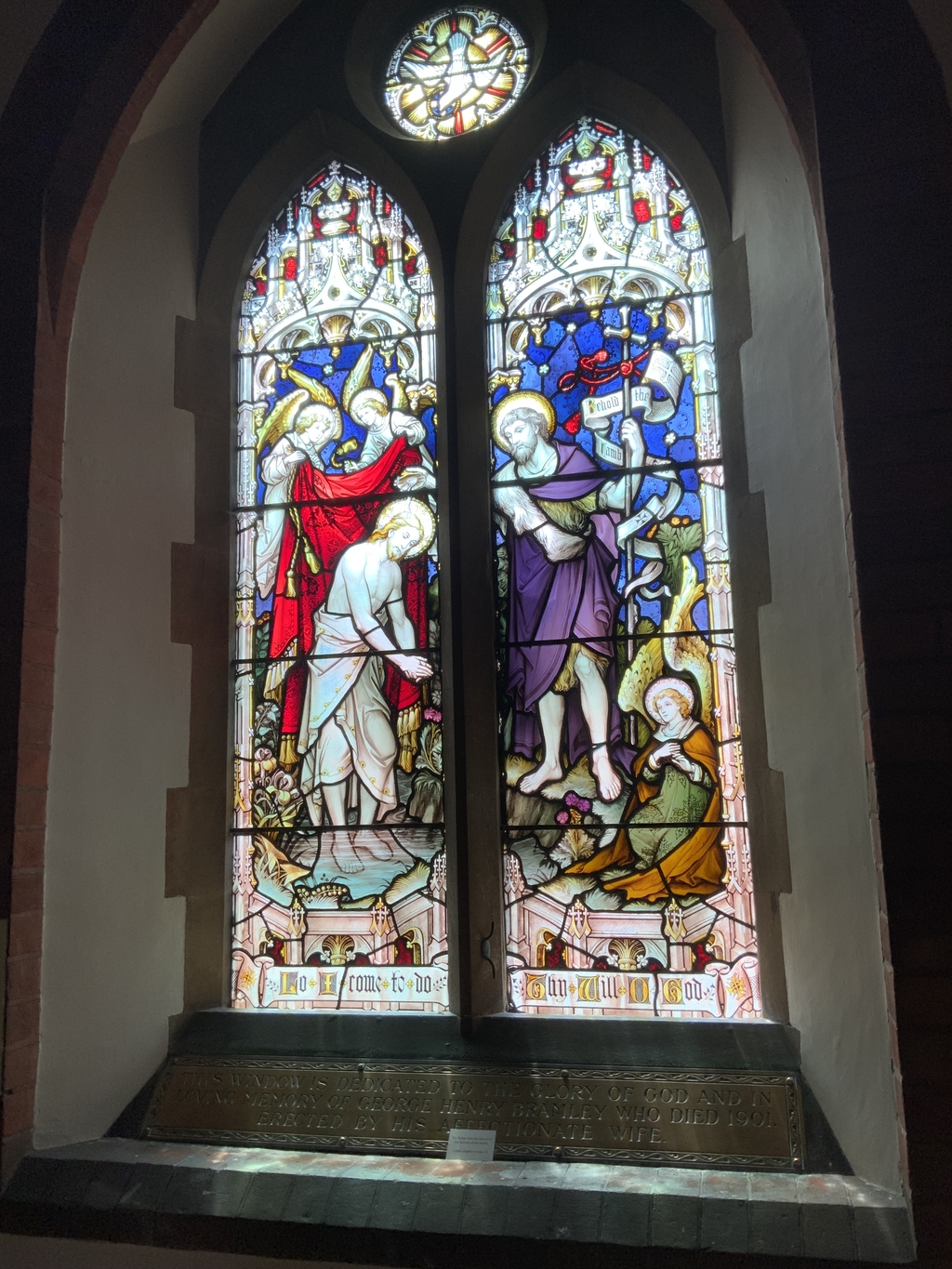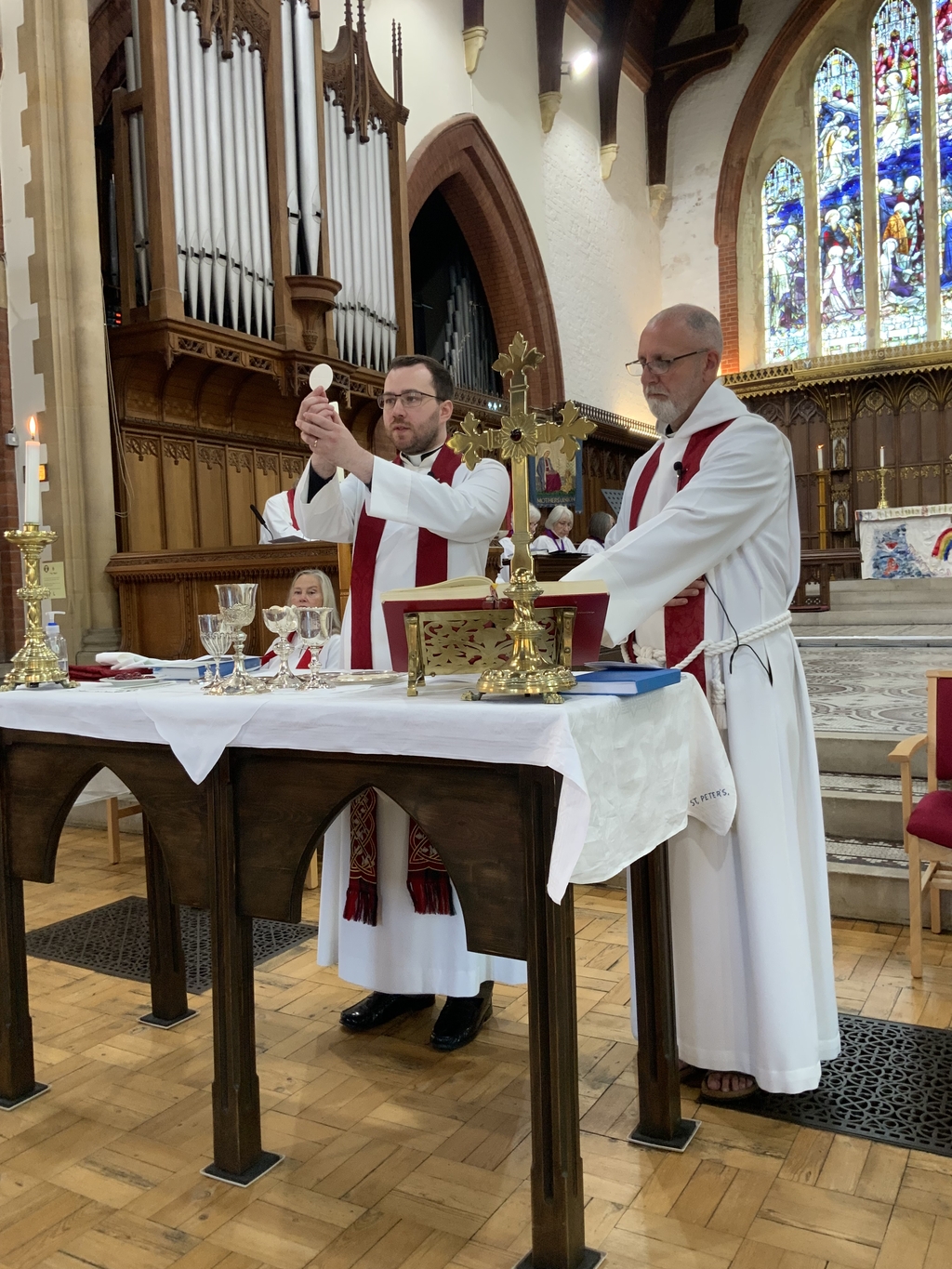Jesus told his disciples that change was coming, they asked him: “when will this be?” Luke 21.7
Back in the year AD70, only thirty or so years after the Crucifixion, and in response to Jewish terrorist activity, the Roman army moved to demolish the Temple in Jerusalem. Someone called to mind a half-remembered conversation they once had with Jesus.
Rather like some early day tourists the disciples had admired the ancient stonework of the Temple and had commented on how beautiful it was and how marvellous the ritual religion going on inside.
They remembered that Jesus hadn’t been that impressed. They remembered that Jesus had predicted both a downfall in the old ways of religious life and a resurrection to new patterns of worship.
They remembered the feeling of shock.
They maybe also remembered that mysterious comment mentioned at the trial of Jesus – the Temple would be destroyed and He would rebuild it within three days.
But in the gospel snippet read today it gets all mixed up. That half remembered conversation comes out in a confusion of confident prediction and vague propositions.
What exactly was to fall down? And what would take its place? And when will this be?
The comments can be read at two levels – the physical and the spiritual.
Physically, in the view of Jesus the ritual and the heritage would not survive changes in society, where the Roman Empire was in control and driving cultural change. Jesus could see that the current approach to religious expression and practice would have to change if it were to survive.
Spiritually, one expression of worship would have to end in order that a new expression could take its place. The Death of one understanding would be followed by Resurrection of another.
These physical and spiritual changes converged in the life of Jesus. The physical prompted the spiritual; the spiritual was reflected in the physical.
This teaching of Jesus around this physical/spiritual conundrum brings out a deep truth: that it is in our personal life where God works to confront and challenge us, to shake us out of our spiritual comfort zone and build up sensitive, caring and loving expressions of faith.
The prophet Malachi had predicted that such a day would come as existing social structures broke down, and the freedom to fly to new spiritual heights was discovered.
In the post Temple era, St Paul expected the Roman influence to continue the drive for social and cultural change, so believers in the Christian approach to spiritual life would have to work hard to convince traditionalists of the need to embrace the new life promised in the resurrection of Christ. There could be no room for idleness in spiritual expressions.
The Romans had destroyed the physical setting for the old rituals of religion, it was time to reshape the traditions into new expressions of faith so that they were fit for purpose in meeting the needs of1st and 2nd century communities.
This imperative to keep the Christian faith fit for current purpose has never gone away. All down the centuries history points to upheavals in the expression and practice of faith. Those who get stuck in the past find themselves in the worst of both worlds – harking back to a world that is passing away, and missing out on the creative opportunities opening up in front of them.
At St Peters we recognise worship at every level –
…the person who enters church when no one is about and sits quietly in worship…
…the person who sits at Café Church and worships informally…
…those who like ourselves this morning join in corporate formal expressions with a set-piece liturgy, dotted about with a mixture of the old and the new in liturgy and hymnody.
In these days when people are beginning to take a renewed interest in faith, we have a great opportunity to share our faith with the people we know in a way that resonates with them.
St Paul expected his readers to provide enough of an example of living in faith, for others to imitate.
If we are to provide an attractive spiritual lifestyle that others would be pleased to imitate, then as St Paul suggests, we must continue to work hard to live out the love of Christ in our corporate and personal activity.
Our lives are lived in the day to day; and it is in the ordinariness of life where God is most active.
We are challenged to bring the Christian faith before people in the work place, in school, in the gym, when we are out shopping, when we are interacting with members of our family and friends. Always providing an example of faithful living for others to perhaps imitate.
Each of us has a duty to provide a living example for others to imitate; to live the life of faith about which we sing and pray and celebrate in this service of Holy Communion, living out the resurrection life.
The Revd Malcolm France











